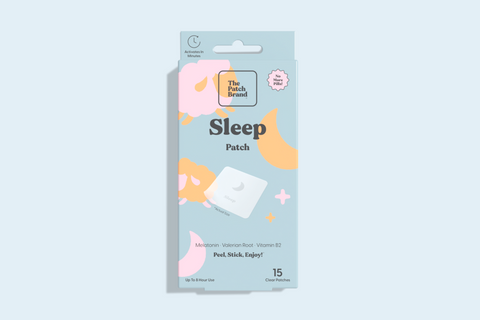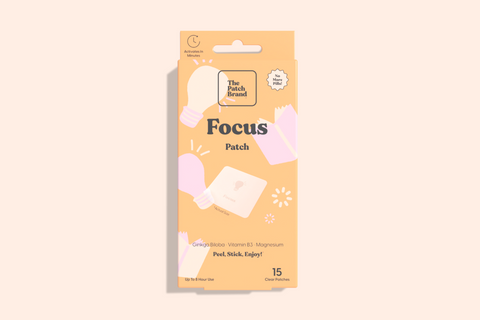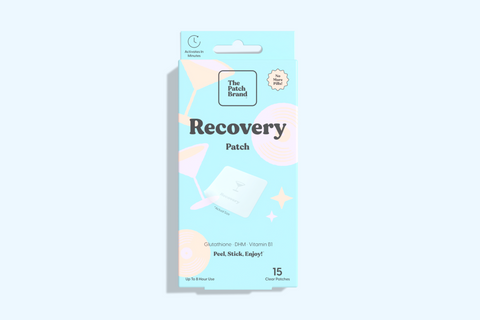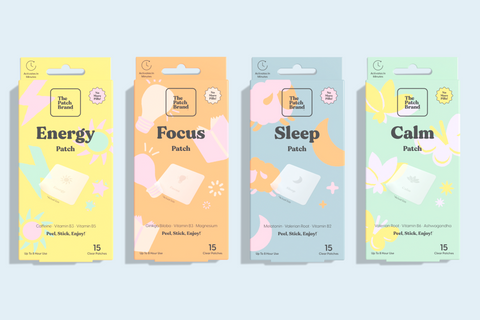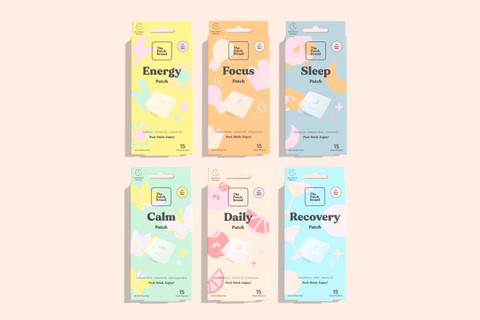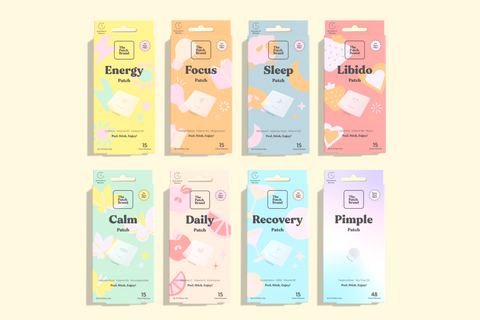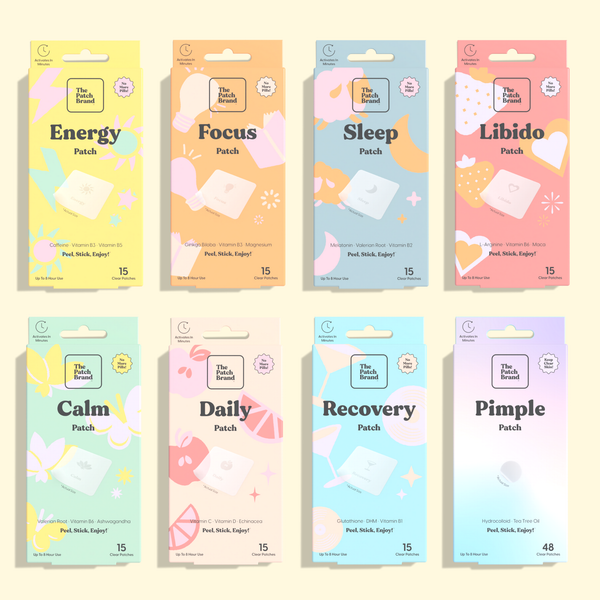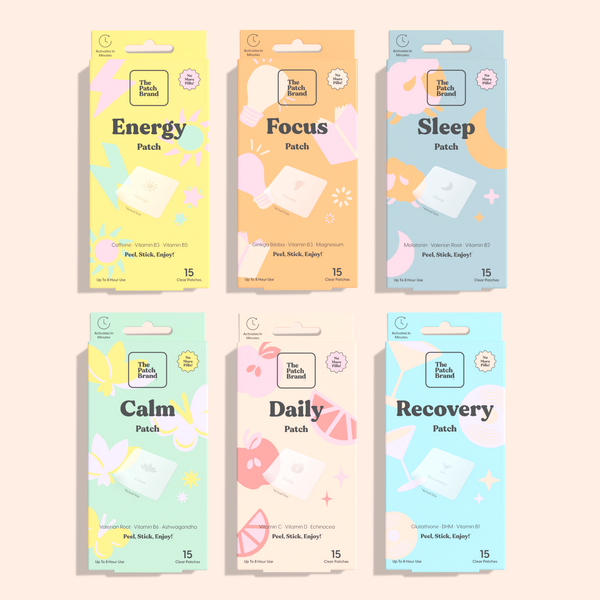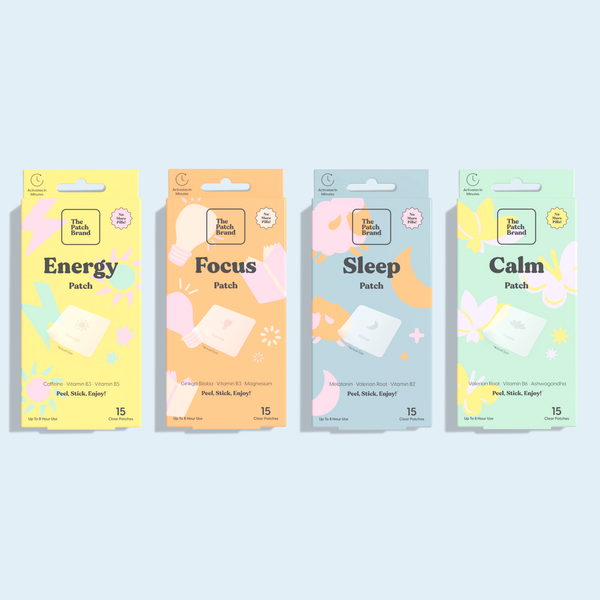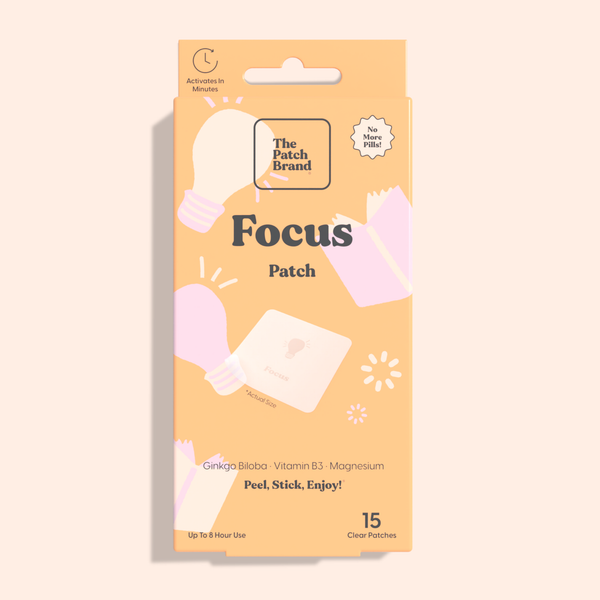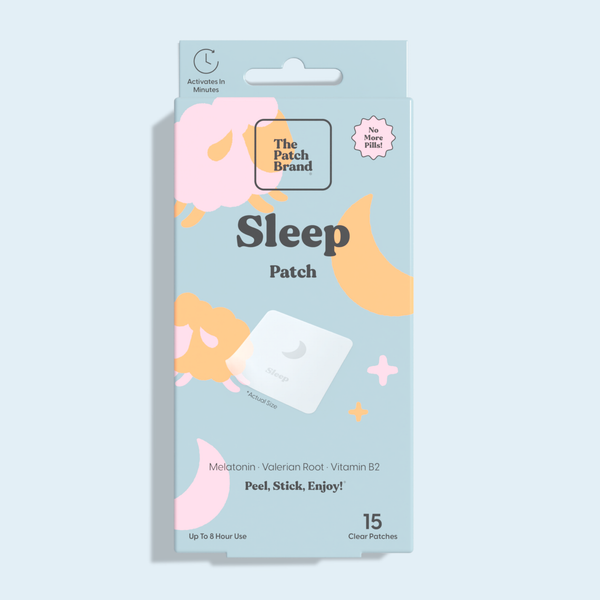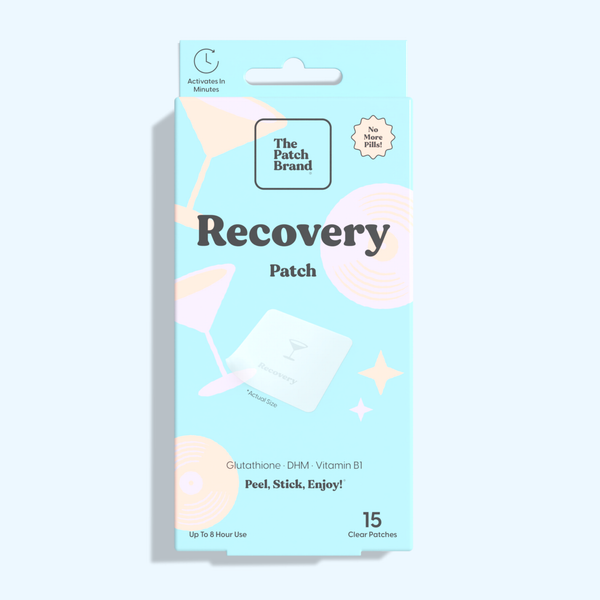A good night's sleep is essential for
maintaining overall health and well-being. Quality sleep enables the body to heal, rejuvenate, and prepare for another day of activity. Unfortunately, many individuals struggle with various sleep issues, resulting in poor sleep quality and potential negative impacts on their mental and physical health. In this blog post, we will explore five common issues affecting sleep and offer practical guidance on how to address them.

Issue 1: Stress and Anxiety
Stress and anxiety can have a significant effect on sleep quality. These emotions can cause racing thoughts and an elevated heart rate, making it challenging to calm down and fall asleep. Furthermore, individuals who are struggling with stress and anxiety may also have trouble staying asleep, resulting in restless and interrupted sleep patterns. Good sleep is essential for physical and mental well-being. When stress and anxiety levels are high, it can be difficult to achieve the restful sleep that is necessary for good health.
Managing Stress and Anxiety to Improve Sleep
Establishing a bedtime routine can transform how you end your day, setting the stage for better sleep quality and reduced stress levels. By following a consistent nightly pattern, you encourage your body and mind to enter a state of relaxation, making it easier to drift off into a peaceful sleep. A well-structured bedtime routine that incorporates calming activities can significantly enhance your overall well-being. Here are some activities you might consider:
-
Reading: Choose a relaxing book or article to read before bed. This should be something light and enjoyable that doesn't evoke strong emotions or require intense concentration. Reading helps transition your brain from the day's stress to a state of calm, lowering your heart rate and easing you into relaxation. It also serves as a signal to your body that it's time to wind down, making it easier to fall asleep once you put the book down.
-
Meditation: Spend 10-15 minutes practicing mindfulness or engaging in guided meditation. This practice helps in clearing your mind of the day's stresses and focuses on slow, deep breathing to reduce your heart rate and blood pressure. Meditation not only helps in calming the mind but also enhances overall sleep quality by promoting a smoother transition to deep sleep.
-
Gentle Stretching: Gentle stretching before bed can be immensely beneficial for relieving physical tension and calming your mind before sleep. Focus on slow, soothing stretches that ease muscle tightness and promote relaxation. This not only helps in reducing discomfort from the day’s activities but also signals the body that it’s time to slow down. Stretching can also prevent night-time cramps and stiffness, improving your sleep quality.
Adopting these practices into your nightly routine can dramatically
improve your sleep quality and help you manage stress more effectively. Over time, these habits can become a natural part of your evening, signaling to your body that it's time to rest and rejuvenate.
Incorporating relaxation techniques like deep breathing, progressive muscle relaxation, or guided imagery can also be beneficial in calming the mind and body. These techniques can help reduce stress and promote a peaceful transition into sleep. Additionally, taking
sleep vitamins or using a
sleep aid patch can provide extra support in reducing stress and improving sleep quality.
Issue 2: Poor Sleep Environment
Having a subpar sleep environment can be detrimental to getting a good night's sleep. Exposure to disruptive noises, light, and temperature changes can make it difficult to fall asleep and lead to frequent awakenings throughout the night. This can leave individuals feeling tired and groggy the next day, impacting their overall quality of life. By creating a sleep environment that is conducive to restful sleep, individuals can improve their sleep quality and feel more refreshed and alert during the day.
Creating an Optimal Sleep Environment
Creating a conducive sleep environment is crucial for achieving quality rest, which can enhance overall health and well-being. Here are some strategies to optimize your bedroom for the best possible sleep:
-
Block Light: Light exposure during sleep can interfere with your body's natural circadian rhythms, leading to disrupted sleep patterns. To combat this, consider installing blackout curtains on your windows. These curtains are designed to block incoming light from outside, which is especially beneficial in urban areas where street lights and car headlights can be intrusive. Alternatively, wearing an eye mask is an effective solution for personal light blocking. It's a simple, portable option that ensures darkness, helping your body to produce the sleep-inducing hormone melatonin more effectively.
-
Minimize Noise: To create a quieter sleep environment, earplugs can be an effective tool. They are particularly useful in noisy living areas or for people with partners who snore. Another option is a white noise machine, which produces a consistent, soothing sound that masks background noises. The sound of white noise or similar sounds like rain or ocean waves can help drown out the jarring interruptions of traffic, barking dogs, or other sudden noises, allowing for uninterrupted sleep.
-
Regulate Temperature: The temperature of your sleeping environment plays a critical role in how well you sleep. The ideal bedroom temperature is around 65°F (18°C), though this can vary slightly based on personal preference. Maintaining this temperature can help your body stay cool enough to enter and maintain the deeper phases of sleep without waking. Consider using a programmable thermostat to automatically adjust your room's temperature throughout the night. Additionally, the right bedding, such as breathable cotton sheets, can also help maintain a comfortable sleeping temperature.
Incorporating these adjustments into your bedroom can significantly improve your sleep quality. A dark, quiet, and cool environment supports your body's natural sleep processes, leading to more restorative sleep. Implement these changes gradually to see which adjustments make the biggest difference in your sleep quality. If necessary, a patch for sleep can be used to support these efforts and enhance overall sleep quality.

Issue 3: Inconsistent Sleep Schedule
An inconsistent sleep schedule can disrupt the body's internal clock, also known as the circadian rhythm. As a result, individuals may find it difficult to fall asleep or stay asleep throughout the night. Irregular sleep patterns can lead to daytime sleepiness and reduced overall sleep quality.
Maintaining a Consistent Sleep Schedule
Establishing and maintaining a consistent sleep schedule is crucial for optimal health and well-being. It not only improves the quality of your sleep but also helps in regulating your mood and energy levels throughout the day. A well-regulated sleep schedule aligns your body’s internal clock, or circadian rhythm, which is essential for effective sleep-wake transitions. Here are two key strategies:
-
Regular Bedtime and Wake-up Time: Commit to a specific bedtime and wake-up time each day, even on weekends. This consistency reinforces your body's sleep-wake cycle, making it easier to fall asleep and wake up naturally. Regular timing sends a clear signal to your brain about when to release sleep and wake hormones, such as melatonin and cortisol, enhancing the quality of your sleep. Over time, adhering to these times can reduce the amount of time it takes to fall asleep and minimize instances of waking up during the night.
-
Limit Daytime Naps: While short power naps can be rejuvenating, long or irregular napping during the day can interfere with your nighttime sleep. Limit naps to 20-30 minutes and avoid napping late in the afternoon or evening. This strategy helps maintain your body's drive for sleep at night and ensures that you feel sufficiently tired at bedtime. By controlling daytime sleep, you enhance your body's natural tendency to feel sleepy at night, promoting a more consistent sleep pattern and preventing sleep fragmentation.
By implementing these strategies, you can dramatically improve not only the quality of your sleep but also your overall daily functioning. Consistency in your sleep schedule sets the foundation for a healthy lifestyle, as good sleep contributes to better mental clarity, emotional regulation, and physical health. Establishing such routines requires discipline and commitment, but the benefits to your sleep quality and life satisfaction are well worth the effort.
Issue 4: Sleep Disorders (e.g., Insomnia, Sleep Apnea)
Insomnia or sleep apnea are just some of the sleep disorders that can result in interrupted and reduced sleep quality. Insomnia may cause difficulty falling or staying asleep, while sleep apnea can lead to brief but frequent interruptions in breathing during sleep. These disruptions not only reduce sleep quality but may also contribute to other health issues.
Addressing Sleep Disorders
If you are experiencing sleep issues, consulting a medical professional is the initial and most crucial step. These specialists are equipped to evaluate your symptoms through a comprehensive assessment, including your medical history, sleep patterns, and any underlying conditions that might be disrupting your sleep. They might conduct specific tests such as polysomnography (sleep study) or a Multiple Sleep Latency Test (MSLT) to measure how quickly you fall asleep during the day.
Once a diagnosis is established, your healthcare provider will explore a range of treatment options tailored to your specific condition. For instance, if you suffer from insomnia, cognitive-behavioral therapy for insomnia (CBT-I) might be recommended. CBT-I helps you address the thoughts and behaviors that cause or worsen sleep problems with habits that promote sound sleep. Unlike sleeping pills, CBT-I helps you overcome the underlying causes of your sleep problems. If a condition like sleep apnea is diagnosed, treatments could include lifestyle changes such as weight loss or medical devices like CPAP machines to keep your airway open during sleep. Advice on diet and exercise can play a crucial role, as certain foods and activities can either hinder or facilitate a better night's sleep. For more complex sleep conditions, your doctor might integrate a multidisciplinary approach, involving nutritionists, physiotherapists, or sleep psychologists, therefore providing a comprehensive treatment plan that addresses all facets of your sleep health.
For individuals dealing with sleep disorders, using a
sleep patch can also be beneficial. These patches often contain vitamins and supplements like melatonin, which support the body's natural sleep processes. By providing the body with the nutrients it needs to fall asleep and stay asleep,
sleep patches can help improve sleep quality and ensure that individuals get the rest they need to be their best. Whether you are dealing with insomnia, sleep apnea, or another sleep disorder, a combination of medical treatment and sleep patches may be the key to better sleep.

Issue 5: Lifestyle Factors (e.g., Caffeine, Screen Time Before Bed)
Adjusting Lifestyle Factors to Improve Sleep
Improving sleep quality starts with small changes, such as limiting caffeine intake. Caffeine is a stimulant found in coffee, tea, chocolate, and some soft drinks and medications. It works by blocking the action of a natural brain chemical that is associated with sleep, thereby delaying the timing of your clock and reducing both total sleep time and sleep quality. For individuals sensitive to caffeine, its effects can last for many hours after consumption, thus interfering with the ability to fall asleep. To mitigate these effects, it's advisable to avoid caffeine at least six hours before bedtime. If you crave a warm beverage in the evening, switching to herbal teas such as chamomile or peppermint can be beneficial as they are naturally free from caffeine and possess natural sedative properties.
Establishing a screen-free bedtime routine is another effective way to improve sleep. Additionally, incorporating vitamins for sleep or using a vitamin patch can provide extra support for those looking to enhance their sleep quality. Making these small changes will allow you to set yourself up for a better night's sleep and improved overall well-being.
Addressing common sleep issues is essential for achieving better sleep quality and promoting overall well-being. By managing stress and anxiety, creating an optimal sleep environment, maintaining a consistent sleep schedule, addressing sleep disorders, and adjusting lifestyle factors, individuals can make significant strides in improving their sleep quality. Don't hesitate to seek professional help if needed and consider incorporating a
sleep vitamin or
vitamin patches as part of your efforts to achieve restful, rejuvenating sleep.



